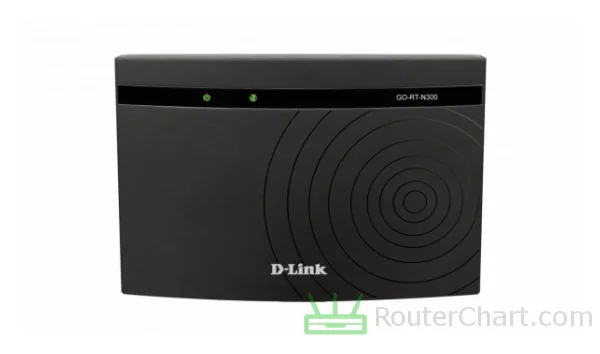D-Link GO-RT-N300 router review
D-Link introduced the GO-RT-N300 router in 2013. It is powered by Realtek RTL8196E @ 400 MHz chipset, 8 MB of RAM, and 2 MB of flash memory.
Curious if this D-Link router is a real gem? Keep reading to know!
Table of Contents
- D-Link GO-RT-N300 specifications
- Body, dimensions, weight
- System, chipset, RAM, flash, power supply
- Network, protocols, WAN and LAN ports
- Wireless, antennas, speed, security
- Connectivity
- Features
- Administration, user interface, login information
- Links
- Verdict, Pros and Cons
- Photos
- Comparisons
Our personal experiences and opinions form the basis of this article. We aimed to share insights on a topic, and we hoped others would find it useful and inspirational. If you noticed any mistakes or missing details about the D-Link GO-RT-N300, please let us know.

If you need more features, you may want to consider better D-Link routers. D-Link is known for being a respected and well-known maker of networking equipment.
D-Link GO-RT-N300 specifications
| Brand | D-Link |
|---|---|
| Name | GO-RT-N300 |
| Type | GO-RT-N300 |
| Rating | |
| Launch | 2013 |
Body
| Dimensions | 160 x 120 x 59 mm |
|---|---|
| Weight | 193 g |
If you plan to move a lot and need to take your router with you, the size is important. Otherwise, the size isn't too crucial. If you buy a router online or have it shipped, the weight may affect the total cost.
System
| Chipset | Realtek RTL8196E @ 400 MHz |
|---|---|
| RAM | 8 MB |
| Flash | 2 MB |
| OS | D-Link |
| Power supply | 12 V / 0.5 A |
The Realtek RTL8196E @ 400 MHz CPU provides processing power. Some router features and software work best when they have enough RAM to help them.

Network
| Protocols | IPv4 |
|---|---|
| LAN ports | 4 x 10/100 Mbps |
| WAN ports | 1 x 10/100 Mbps |
| Mobile network | no |
| VPN support | no |
The GO-RT-N300 features a Fast Ethernet WAN port that has a maximum speed of 100 Mbps.
Wireless
| Antennas | 2 x 2.5 dBi internal |
|---|---|
| 2.4 GHz | yes |
| 5 GHz | no |
| 60 GHz | no |
| Standards | IEEE 802.11b/g/n |
| Class | N300 |
| Speed | 300 Mbps |
| Transmit power | 17 dBm |
| Security | WPA WPA2 WPS |
| Guest network | no |
The router supports the 2.4 GHz Wi-Fi. This is a Wi-Fi 4 router, with slower data transfer speeds. This can result in slower downloads, buffering, and reduced performance. The introduction of WPA2 (Wi-Fi Protected Access 2) improved upon WEP. It provides stronger security. The Wi-Fi Protected Setup (WPS) lets you join a safe wireless network with the push of a button or a simple PIN entry.

Connectivity
| USB ports | no |
|---|---|
| Print server | no |
| File server | no |
The GO-RT-N300 router doesn't have file-server or print-server functionality.
Features
| Specials | DIR-617 |
|---|
Administration
| Default IP | 192.168.0.1 |
|---|---|
| Default username | Admin |
| Default password | [blank] |
If you can't log in to your D-Link router's setup panel, try resetting it. A reset can help you troubleshoot. It is highly recommended to change the default password of your GO-RT-N300 router. Do this after the initial setup.
Links
| Official site | https://www.dlink.com/ |
|---|
Pros and Cons
Every router, including this D-Link one, has its good sides and not-so-good sides. Let's take a closer look at both to get a full understanding of what this router can do. Just remember, this is just what I think, and you might see things differently.
Pros
- lightweight
- WPS friendly
Cons
- insufficient memory
- insufficient flash
- lack of Gigabit LAN
- Non-gigabit WAN port
- missing Wi-Fi 6 support
- lacks Wi-Fi 5 compatibility
- reduced Wi-Fi bandwidth
- incompatible with WPA3
- no USB connectivity
D-Link GO-RT-N300 photos




D-Link GO-RT-N300 comparisons
We've noticed that many of our visitors like to compare the D-Link GO-RT-N300 router with these popular models.
If there’s information about the D-Link GO-RT-N300 that you would like to see on this site, then write to us.
Updated: May 25, 2024





